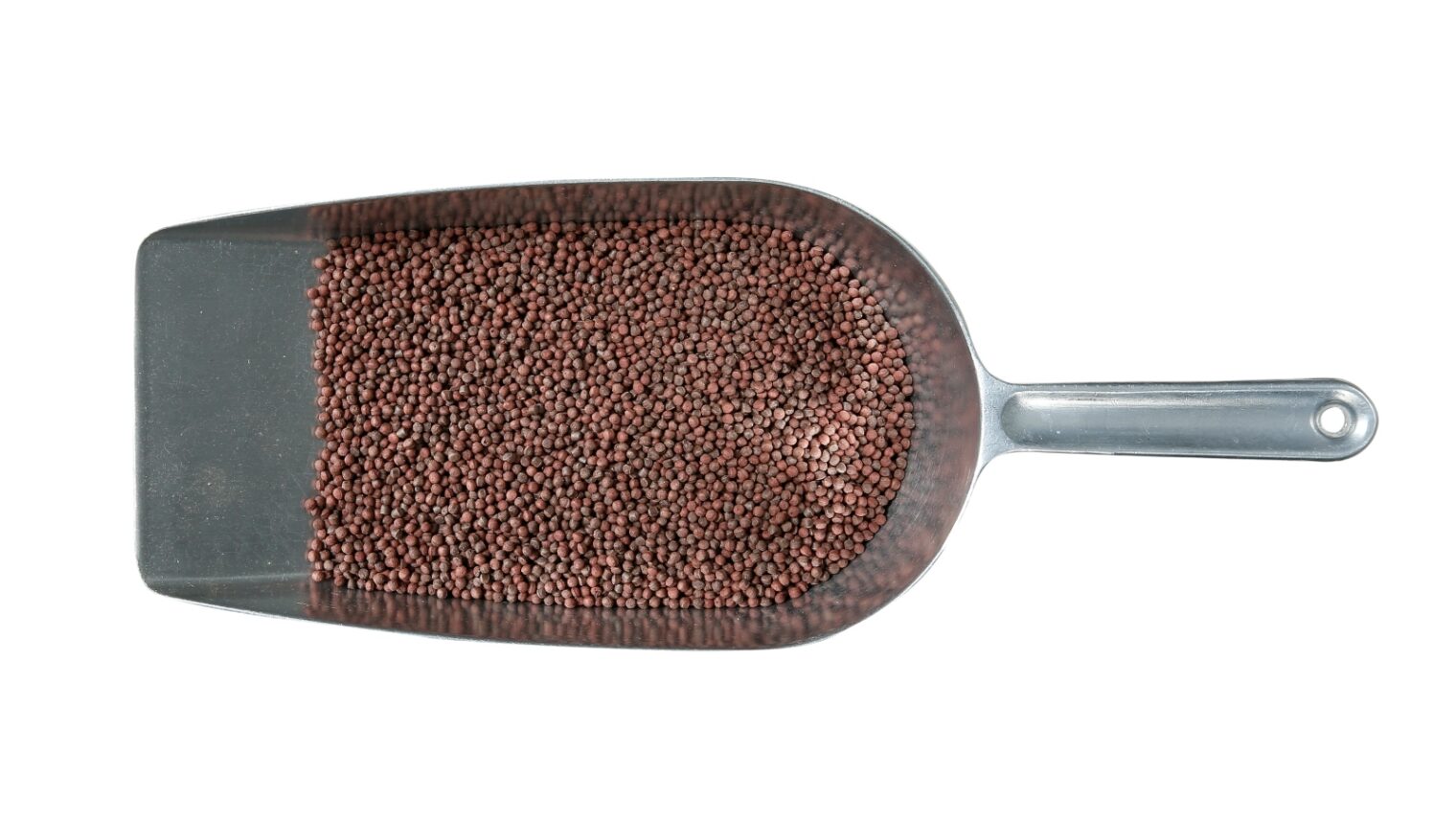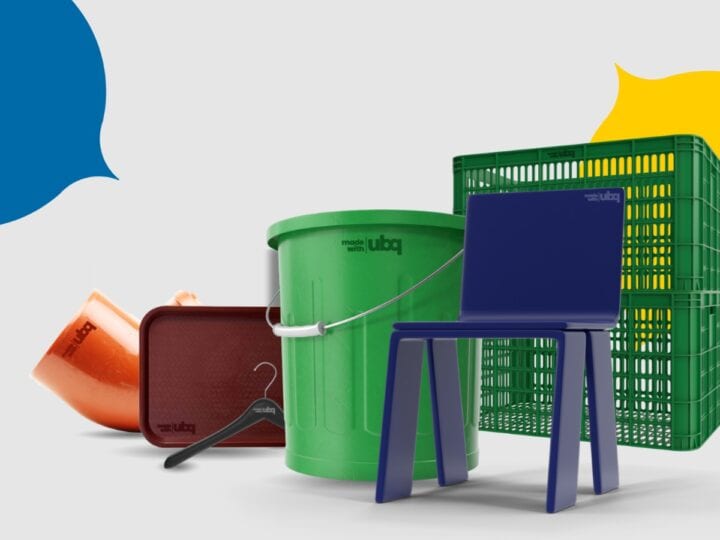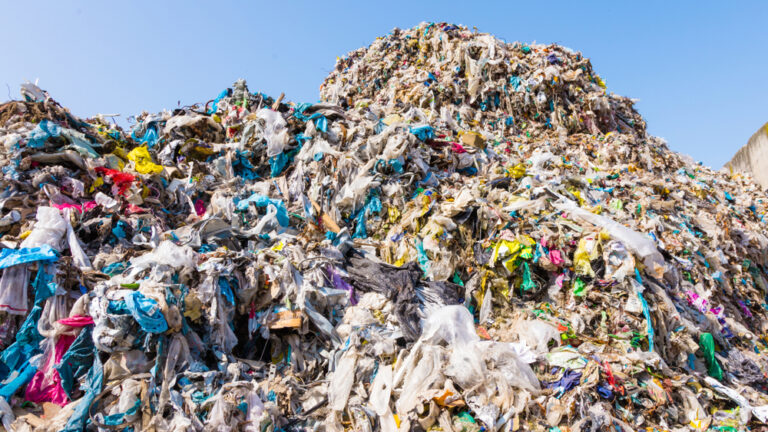What if you could make a new trash bin out of trash, or plumbing pipes from a pile of rubbish?
A waste-conversion technology set up in Israel’s Negev desert demonstrates that it can do exactly that, using the 80 percent of household garbage that is typically not recycled.
Instead of chicken bones, peels, soiled paper and plastic ending up in landfills, a patented process from UBQ turns them into bio-based raw materials for replacing or supplementing plastic or wood in a range of commercial products.
“We’re now able to take all these mountains of garbage — unsorted waste — and convert it to something useful, something that will actually benefit the environment,” says Prof. Oded Shoseyov, a renowned Hebrew University of Jerusalem nano-biotechnology expert and inventor, and UBQ’s scientific adviser.
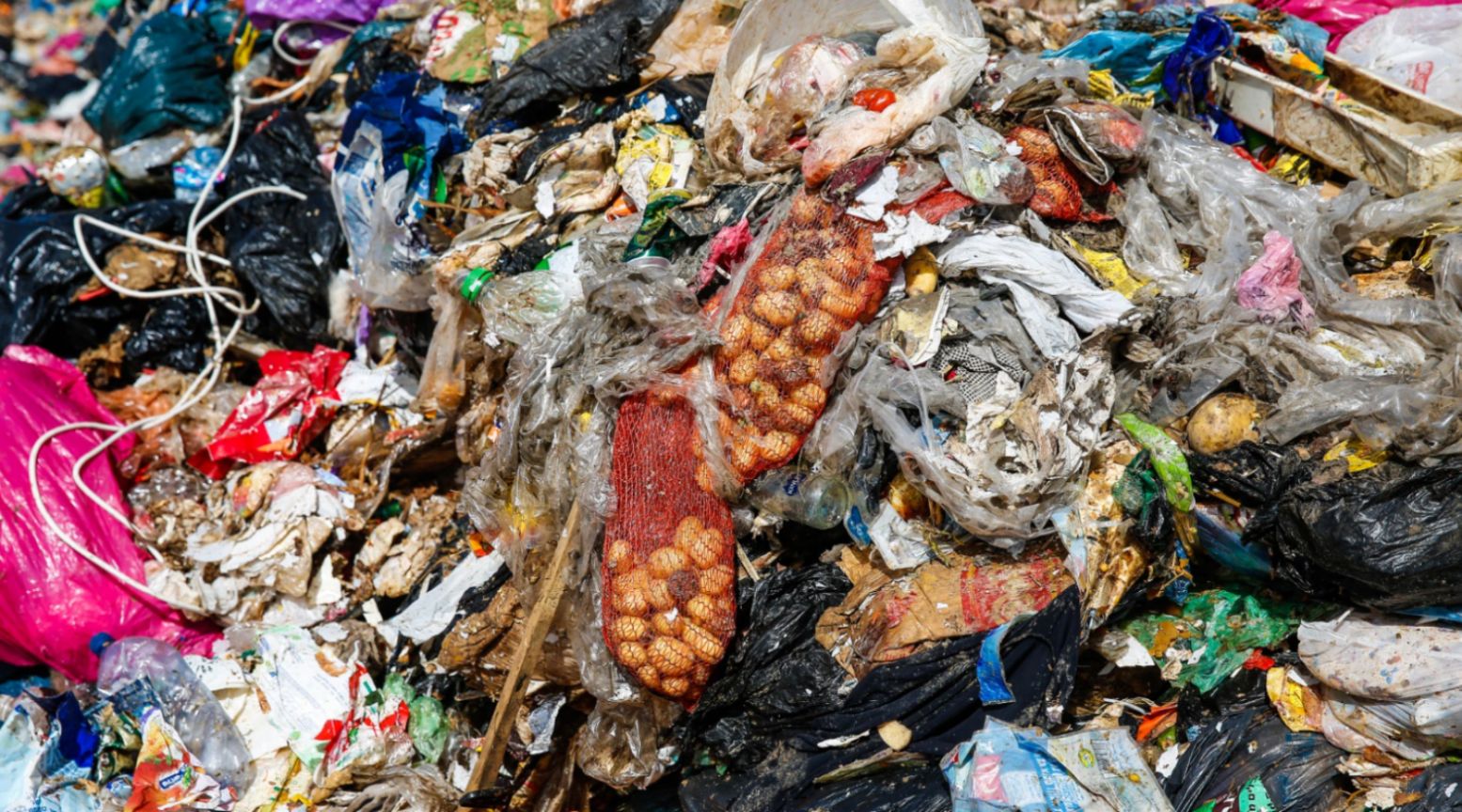
Founded in 2012, but only out of stealth mode since January this year following commercial product-development trials, the Tel Aviv-based company has raised $30 million. Shoseyov and Nobel Chemistry Prize winner Prof. Roger Kornberg from Stanford University sit on UBQ’s advisory board along with, among others, former European Commissioner for Climate Action Connie Hedegaard.
UBQ’s commercial pilot plant and research facility in Tze’elim is working with research teams at Israeli institutes such as Shenkar College of Engineering, Hebrew University and Technion-Israel Institute of Technology to further refine and scale the process.
Meanwhile, limited commercialization already has begun.
“We are selling our materials for extrusion and injection-molded plastic production at leading international Israeli companies. We are also testing the material with a number of companies in Europe and the United States,” UBQ’s chief executive, Jack “Tato” Bigio, tells ISRAEL21c.
UBQ presented a demonstration of the system to a gathering last March of 1,000 international entrepreneurs and investors, including many from China, at the 18th annual GoforIsrael conference in Tel Aviv organized by Cukierman & Co. Investment House and Catalyst Funds. The company will also be at the next GoforIsrael Conference, May 31 in Foshan, China.
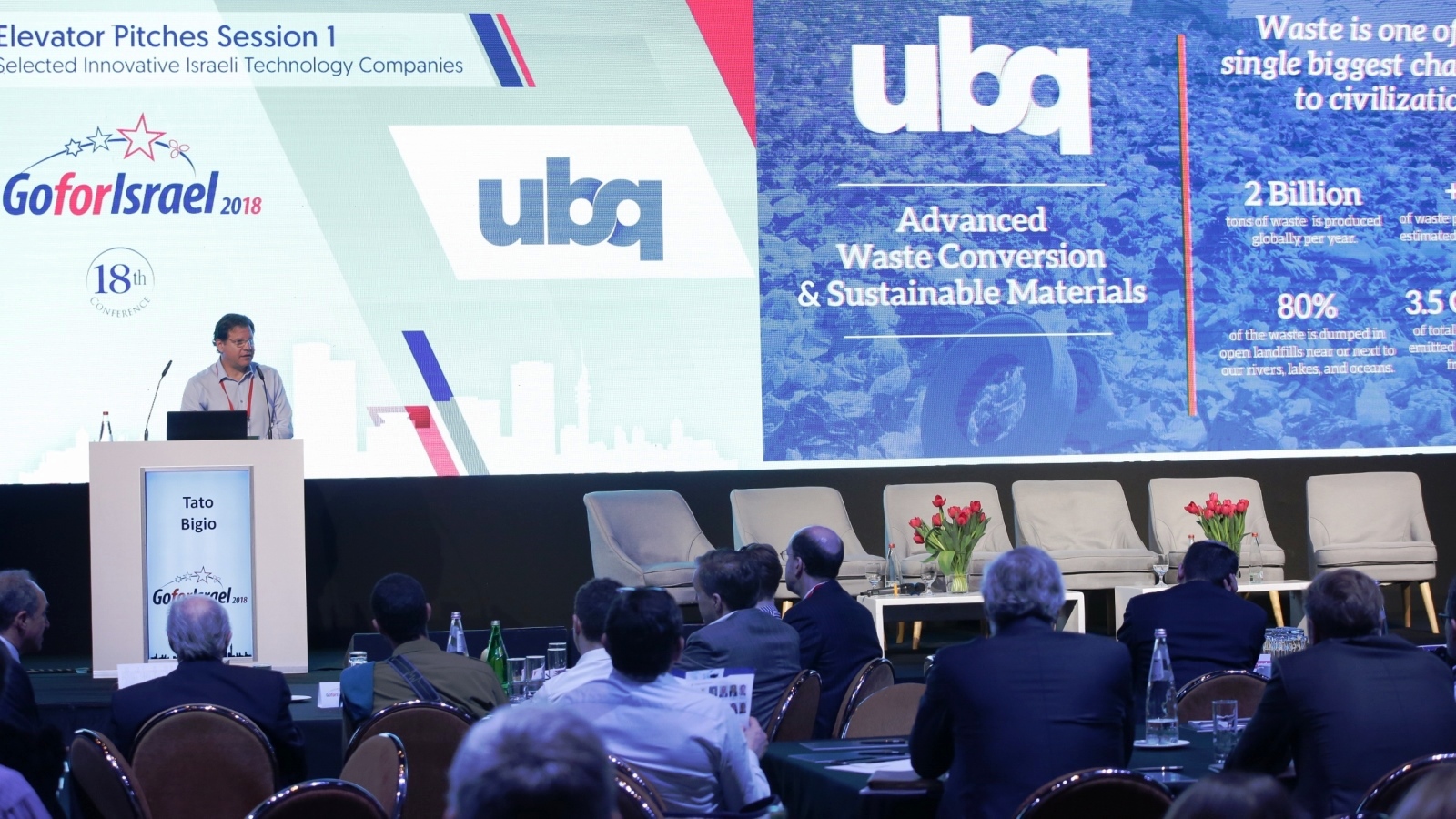
How the process works
In the first step of UBQ’s system, residual waste is pre-sorted and screened to weed out any discarded items that can be recycled, such as metal and glass.
The remaining waste, typically consisting of up to 60% water, is then dried and shredded into a fluffy material that gets fed into an advanced conversion reactor system, where it is reduced to its more basic natural components.
“At an almost molecular level, these natural components reconstitute themselves and bind together into a new homogeneous composite material,” explains Bigio.
The UBQ material is then compounded into standard pellets to be transported and used in factories anywhere, using existing manufacturing equipment.
The closed-loop process is energy efficient and environmentally friendly, says UBQ Chief Sustainability Officer Christopher Sveen. “No water is used in the process, there are no harmful air emissions and no waste is produced.”
UBQ (short for “ubiquitous”) has an intellectual property portfolio of provisional and granted patents protecting both the innovative process and the resulting sustainable material. Patents have been granted so far in Europe, Eurasia, the United States, China, India, Canada, South Korea, Singapore, Israel and Japan.
“We wouldn’t have gotten patents granted across the world if there was something even similar to what we offer,” says Bigio. “No other company can convert the heterogeneous mix of household waste into a new material, and do it without using any water.”
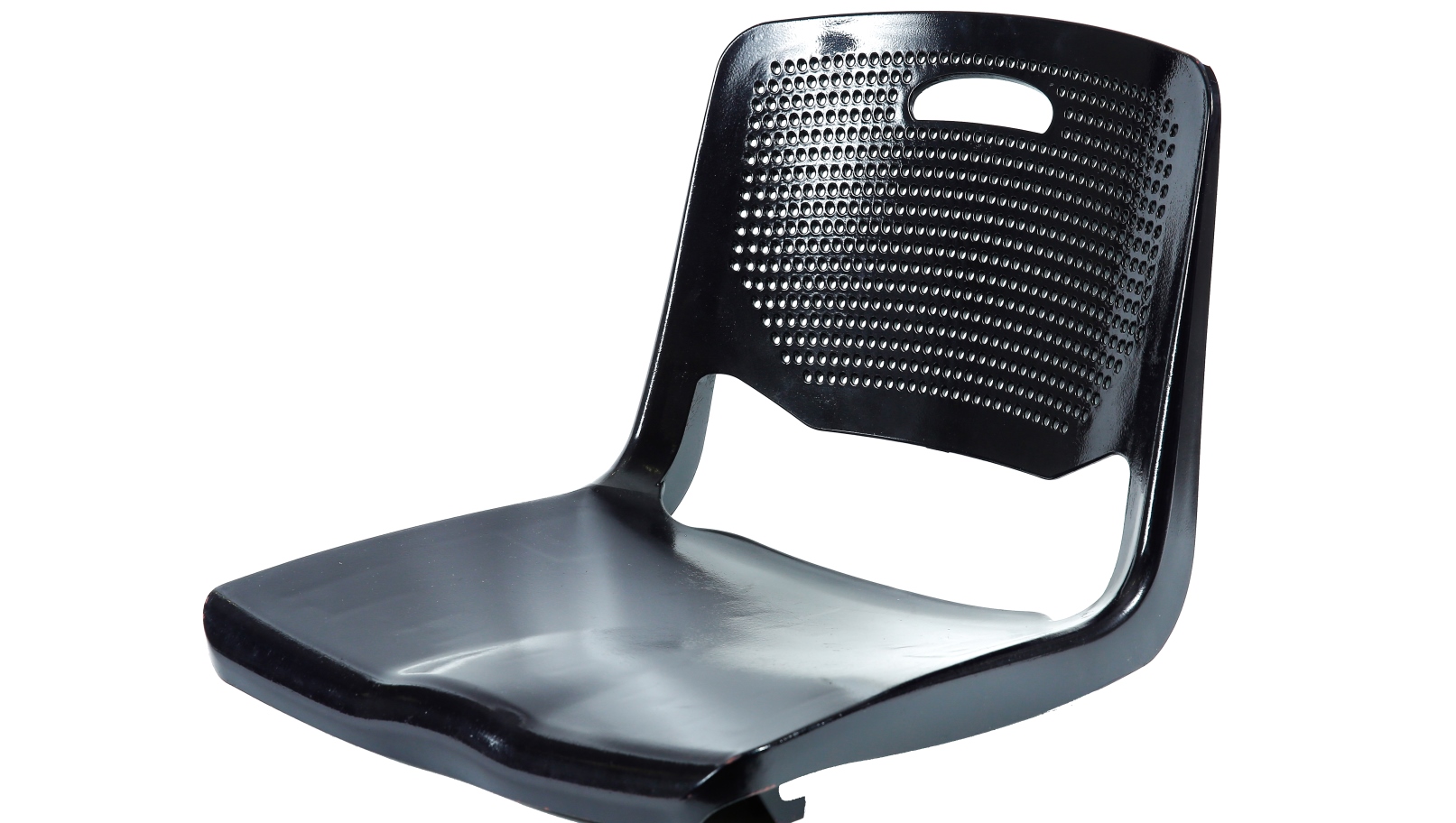
For every ton of material produced, says Sveen, UBQ could prevent an average of 15 tons of CO2 equivalent from being created by keeping waste out of landfills and decomposing.
The company of 24 employees has gotten wide publicity following an Associated Press article published in major US newspapers. In that article, the director of the Plastic Expert Group expressed skepticism about UBQ’s claims and its chances for success.
The Nobelist Kornberg counters, “It becomes believable when you understand the simple principle of why it works, of how UBQ can convert material in this manner.” He explains that the cellulose in waste material is a chain of sugar molecules that can be melted down and repurposed just as one would caramelize sugar in a pot.
“Everyone knows about the importance of minimizing and ultimately eliminating the use of plastic in the world. UBQ is a disruptive technology that is the solution to that problem,” Kornberg states.
For more information, click here




